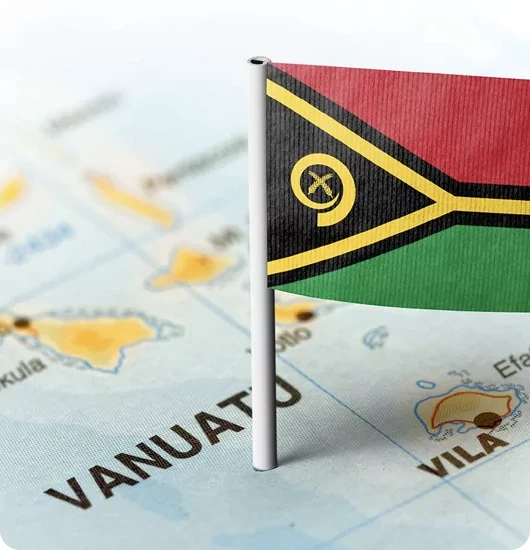In the context of increasing tax pressure and globalisation, tax optimisation is becoming an integral part of financial planning for many affluent individuals and entrepreneurs. In 2026, when the mobility of capital and assets plays a key role in business success, understanding and employing tax optimisation strategies becomes particularly relevant. Tax optimisation is not just a way to reduce the tax burden but also an opportunity to legally utilise the advantages of various jurisdictions for capital protection and effective asset management.
One of the most effective tools for tax optimisation is obtaining a second citizenship, which provides access to jurisdictions with favourable tax regimes. This not only allows for a change in tax residency but also offers low corporate rates, the absence of taxes on global income, and other advantages. A second citizenship provides flexibility in managing income, investments, and assets, which is especially important in a rapidly changing world. It is important to emphasise that all proposed strategies are within the framework of the law and based on international practice.
We are ready to assist you in selecting the appropriate jurisdiction and developing a personalised tax planning strategy. Contact us to learn how to legally and safely utilise second citizenship to achieve your financial goals.
What is tax optimisation?
Along these lines, let us figure out what tax optimisation is and why it is so important in the modern world. Tax optimisation is a legal strategy for managing tax obligations aimed at reducing the tax burden. Unlike tax evasion, which contradicts the law, tax optimisation uses available legal tools and opportunities to minimise tax payments.
The main goals of tax optimisation include the selection of an appropriate jurisdiction, the use of various tax regimes and structures. For example, in Portugal, the NHR (Non-Habitual Resident) regime operates, which allows expats to significantly reduce tax liabilities on income earned outside the country.
- Tax planning and optimisation: this is the process of analysing and applying tax strategies to minimise tax liabilities.
- Double taxation: a problem faced by many international investors when the same income is taxed in two different countries.
- Tax residency: a status determining in which country you are obliged to pay taxes on global income.
Did you know that about 30% of countries in the world, including Panama and Hong Kong, use territorial tax systems? This means that they only tax income earned within the country, which opens up wide opportunities for tax planning.
Competent use of tax strategies can significantly improve the financial results of a company or an individual. To move on to the next topic, let us consider how a second citizenship can affect tax residency and what opportunities it opens up for tax optimisation.
How does a second citizenship affect taxation?
Here’s a telling example: The United Arab Emirates (UAE) attract the attention of many entrepreneurs and investors thanks to their tax policy. In the UAE, there is no personal income tax, and the average corporate rate is only 0% for most companies. This makes the country attractive for those considering changing their tax residency through obtaining second citizenship.
Opportunities and advantages of second citizenship
Obtaining a second citizenship provides access to jurisdictions with favourable tax regimes. This not only allows for a reduction in tax burden but also enables the use of various strategies for structuring income and assets. For example, investors can diversify their portfolios by taking advantage of low tax rates on capital investments in countries with a favourable tax climate.
- A second citizenship provides the opportunity to move freely between countries, conduct business, and invest in various assets, including cryptocurrency.
- In countries with low corporate tax rates, such as the UAE or Vanuatu, companies can reinvest the saved funds into business development or new projects, which contributes to growth and increased profits.
The use of a second citizenship as a tool for tax planning can significantly improve financial outcomes and reduce risks associated with tax obligations.
Popular countries with a favourable tax system
Take, for instance, Panama, which attracts international investors thanks to its territorial tax system. In Panama, only income earned within the country is taxed, which makes it attractive for those who want to minimise tax obligations on global income. This is especially important for entrepreneurs and investors seeking to optimise their tax strategies.
Attractive jurisdictions for tax planning
- Portugal: The NHR (Non-Habitual Resident) regime allows new residents to significantly reduce taxes on income earned outside the country. This makes Portugal popular among European expats.
- UAE: With the absence of personal income tax and low corporate rates, the UAE remains a hub of attraction for businesses and investors.
- Dominica and Saint Kitts: These countries offer a zero rate on foreign income, which attracts wealthy individuals wishing to retain the majority of their earnings.
- Vanuatu: The main advantage of Vanuatu for investors and individuals lies in the fact that it is a tax haven. Vanuatu does not impose personal income tax, corporate tax, capital gains tax, inheritance tax, or wealth tax. As a result, income earned both within the country and abroad is not taxed in Vanuatu.
Tax optimisation strategies with second citizenship
Strategies for tax optimisation using second citizenship can be quite diverse and complex, offering individuals and companies opportunities for more flexible management of their tax obligations, asset protection, and improvement of financial positions. For example, Portugal offers the NHR regime, which allows expats to significantly reduce the tax burden on income earned outside the country. This regime has attracted over 10,000 expats since its introduction.
Relocation and Double Taxation Avoidance Agreements
One of the most popular methods of tax optimisation is relocating to a country with lower taxes or favourable tax regimes. Obtaining second citizenship or a residence permit in countries such as Vanuatu, Portugal, Malta, Cyprus, Saint Kitts and Nevis can provide access to more advantageous tax conditions. Countries offering citizenship-by-investment programmes often have low tax rates, no taxes on global income, or opportunities for tax optimisation.
In addition, double taxation avoidance agreements (DTAA) play an important role in reducing the tax burden. These international agreements between countries allow for the avoidance of double taxation, which is important for those conducting business or working in multiple countries. Such agreements often specify which country has priority in taxing certain income, and they can significantly reduce the tax burden for individuals working on the international stage.
Risks and important nuances
Tax optimisation with a second citizenship can be very effective, but it is not without risks. Firstly, it is necessary to take into account changes in tax legislation. There is also the risk of losing citizenship in case of violating conditions related to tax obligations. Some countries that provide citizenship through investment may require the citizen to remain a tax resident of that country. Non-compliance with this requirement may lead to the loss of citizenship.
Legal and reputational risks
In addition to tax risks, there are also legal and reputational risks. The use of a second citizenship for the purpose of tax optimisation may attract the attention of tax authorities, especially if there is suspicion of using tax evasion schemes. Some countries, for example, the USA, conduct strict checks on tax residents and citizens using dual citizenship to prevent money laundering and financial crimes.
Reputational risks are also important. The use of a second citizenship for the purpose of tax optimisation may provoke a negative reaction from the public or business partners if it is perceived as tax evasion or an attempt to conceal assets. Companies and individuals must carefully approach the choice of tax optimisation strategies and ensure that they comply with ethical standards and international obligations.
The difference between tax residency and citizenship
It is important to understand that tax residency and citizenship are different concepts. Tax residency is a status that determines in which country you are obliged to pay taxes. It is not necessarily connected to citizenship, and you can be a tax resident of a country where you reside for more than a certain number of days in a year (for example, more than 183 days). Tax residency is significant for determining which incomes are taxable and at what rates.
Citizenship provides the right to permanent residence, participation in elections, protection, and other civil rights. At the same time, citizens of countries with citizenship offering tax benefits may have obligations for tax reporting, even if they are not tax residents of that country.
Why is Vanuatu citizenship by investment a strategically wise choice in 2026?
Citizenship of Vanuatu by investment is becoming an increasingly popular choice for those seeking to optimise their financial and tax strategies. In 2026, this programme continues to attract attention due to a multitude of appealing factors. Firstly, the process of obtaining citizenship in Vanuatu is one of the fastest: only 1–4 months. Unlike many other countries, Vanuatu does not require its citizens to reside within the territory of the state.
An important aspect is the tax system. Vanuatu does not impose taxes on income, capital, property, or inheritance. The programme also has significant advantages for those seeking visa-free access to more than 100 countries worldwide.
The country is renowned for its stable political situation and low crime rate, which is especially important for people wishing to ensure the safety of their family and assets. In 2026, Vanuatu continues to remain one of the most advantageous and strategically sensible options for obtaining second citizenship.

Our services include
Analysis and selection of jurisdiction: We thoroughly study your financial situation and goals to offer the best options.
Support for second citizenship programmes: We assist you through all stages of obtaining second citizenship, providing full legal support.
Consultations on tax planning and optimisation: We provide recommendations for reducing tax burdens using international tax agreements and regimes.
Structuring assets: We develop strategies for effective management of assets and income in an international context, minimising risks and increasing profitability. Contact us to receive a personalised consultation and begin the journey towards strategic protection of your assets, tax optimisation, and obtaining a second citizenship.
What is tax optimisation?
Tax optimisation is the process of legally reducing tax liabilities using various strategies and tools. For example, Portugal offers the NHR regime, which allows expats to reduce taxes on income earned abroad.
Is it possible to avoid taxes with the help of a second citizenship?
A second citizenship in itself does not exempt from taxes but provides access to jurisdictions with favourable tax regimes. For example, in the UAE there is no personal income tax.
Which countries are considered favourable for tax optimisation?
Among the popular countries for tax optimisation, Vanuatu, Portugal, UAE, Panama, and Malta can be highlighted. These countries offer various tax benefits and regimes.
Is it mandatory to renounce the first citizenship?
No, most second citizenship programmes do not require renouncing your first citizenship. This allows you to retain all the rights and privileges associated with your original citizenship.
What is the difference between citizenship and tax residency?
Citizenship grants rights and obligations in relation to the state, whereas tax residency determines where you are obliged to pay taxes. For example, you can be a citizen of one country but a tax resident of another, depending on your place of residence and sources of income.
